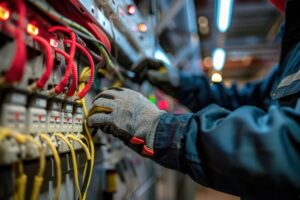The Importance of a Certificate of Compliance (COC) for Electric Fencing in South Africa
Electric fencing is a critical component of security infrastructure in South Africa, offering both physical and psychological barriers against intrusion. However, the installation and operation are subject to stringent legal and safety requirements to ensure they are safe, effective, and compliant with national regulations. A key requirement is obtaining a Certificate of Compliance (COC) for electric fencing. This article explores the significance of a COC, its legal implications, and why adhering to this requirement is crucial for property owners and installers alike.
What is a Certificate of Compliance (COC)?
A Certificate of Compliance for electric fencing is an official document certifying that the installation meets the standards outlined in South African regulations. These standards are governed by:
- Occupational Health and Safety Act, 1993 (Act No. 85 of 1993)
- SANS 10222-3: Electric Security Fencing Part 3
- Electrical Machinery Regulations
The COC ensures that the electric fence installation is safe for humans, animals, and the environment while maintaining its intended security functions.
Why is a COC a Legal Requirement?
The legal framework surrounding electric fencing aims to:
- Protect public safety: Properly installed and maintained electric fences reduce the risk of accidental harm to individuals or animals.
- Ensure compliance with industry standards: Adhering to SANS 10222-3 and other relevant guidelines guarantees the fence’s effectiveness and reliability.
- Enable property transactions: A valid COC is mandatory when selling a property with an electric fence. Without it, the transfer of ownership cannot proceed.
- Avoid legal penalties: Non-compliance with electric fencing regulations can result in fines, liability claims, or suspension of business operations for installers.
Key Elements Checked During COC Certification
To issue a COC, a qualified and registered electric fence installer inspects the following aspects:
- Fence design and construction: Ensuring the fence is structurally sound and adheres to regulatory standards.
- Energizer compliance: The energizer must meet SANS specifications and be installed correctly.
- Earthing and grounding: Proper earthing systems are critical to prevent accidental electrocution or electrical interference.
- Warning signs: Clear, durable warning signs must be installed at regular intervals.
- Proximity to utilities: Electric fences must maintain safe distances from public utilities like power lines and water pipelines.
- Operational testing: The system must be tested for proper functionality, including alarm triggers and voltage output.
The Role of Qualified Installers
Only installers registered with the Department of Labour are authorized to issue a COC for electric fencing. Property owners must hire accredited professionals to avoid invalid certifications and potential legal issues.
To support this, Nemtek offers a certified training facility where individuals can be evaluated and trained to become COC-accredited installers. Through the Recognition of Prior Learning (RPL) process, candidates’ skills and experience are assessed. If found competent, they are recognized as certified electric fence installers with the Department of Labour (DOL) and can issue compliance certificates (COC). This initiative upholds industry professionalism and ensures compliance with regulatory standards.
Consequences of Non-Compliance
Failing to obtain or renew a COC for an electric fence can lead to several complications, including:
- Insurance claim rejections: Many insurance providers require a valid COC to process claims related to electric fence failure or accidents.
- Legal liability: Injuries or fatalities caused by a non-compliant electric fence could result in severe legal repercussions for the property owner.
- Halted property transactions: Property sales cannot proceed without a valid COC for the electric fence.
Conclusion
A Certificate of Compliance is not just a legal requirement for electric fencing in South Africa; it is a vital measure to ensure safety, security, and peace of mind for property owners and the public. By working with qualified installers and adhering to regulatory standards, property owners can avoid legal complications, protect their investments, and maintain the highest safety standards.
Nemtek’s commitment to supporting the industry through its certified training facility underscores the importance of compliance and professionalism. Always prioritize compliance to ensure that your electric fencing provides the protection it is designed for while adhering to South Africa’s laws and regulations.
